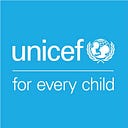UNICEF & ECHO set up autonomous photovoltaic water supply system to improve communities’ access to potable water in the Southwest Region of Cameroon.
Several communities around Mutengene, Southwest Region of Cameroon have abundant natural water resources, yet potable drinking water remains a rare luxury for them due to insufficient water management and hygiene services which pose challenges to both the young and old alike as many depend on streams for their daily activities and livelihood. Unfortunately, this practice leads to the outbreak and spread of epidemics such as cholera which leave communities in a bad condition including children constantly falling sick.
To address this situation, UNICEF Cameroon, in collaboration with its partners supports the government of Cameroon and communities in the development and maintenance of efficient water systems that keep communities healthy, and children protected from life threatening diseases linked to contaminated water consumption.
Such is the case in the Limbe road, Quarter 19 community, Mutengene where UNICEF collaborates with partners such as the European Civil Protection and Humanitarian Aid Operations (ECHO) in setting up an autonomous photovoltaic water supply system which provides clean and safe drinking water for over 1,000 people (including 250 households) in the local community, thus reducing water-related illnesses in the area.
Children, especially girls in the community benefit from excellent water and sanitary services thanks to this water system which keeps them engaged and comfortable in school. The knock-on effects of such lifesaving water and hygiene services are significant, yet UNICEF estimates the funding Gap for humanitarian support for vulnerable children in Cameroon to be at about 58 million USD and advocates for more investment in the rights of children.
